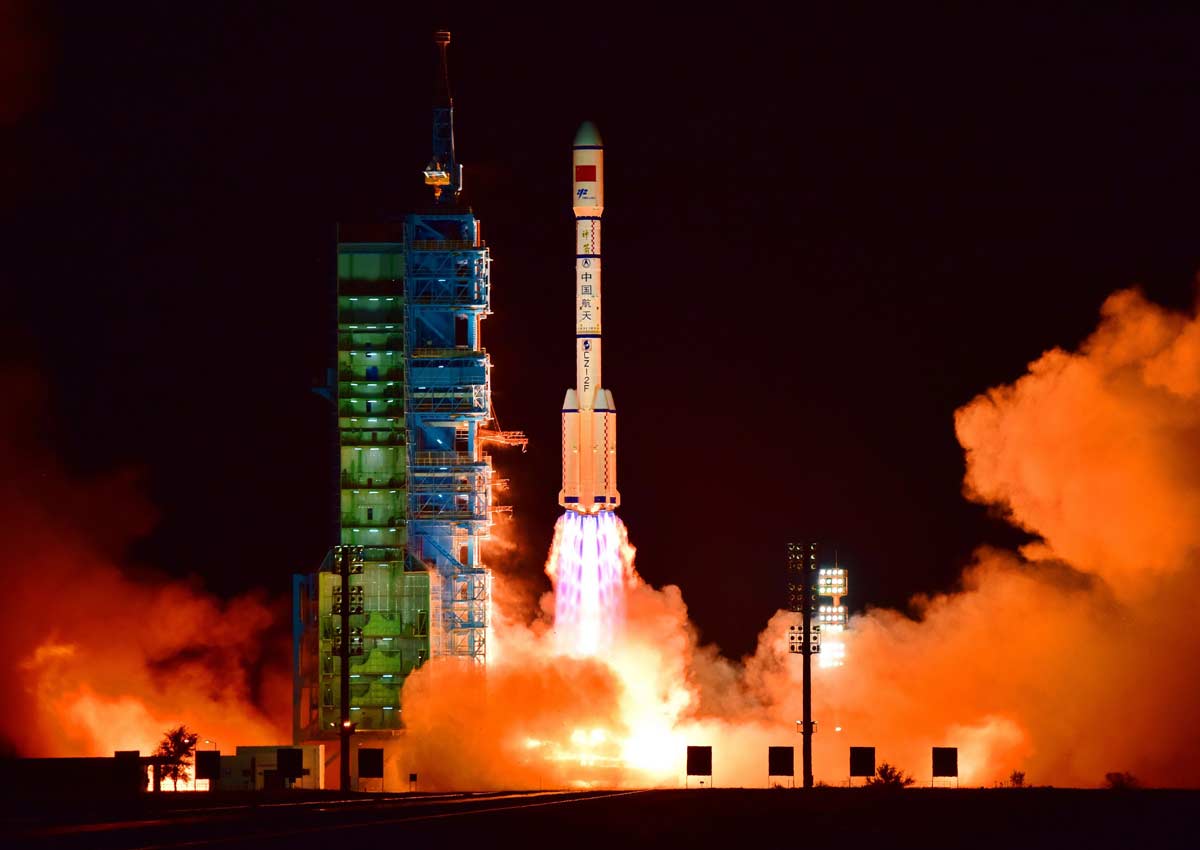Chinese officials have confirmed that the country’s first space lab is expected to fall into the Earth’s atmosphere in the latter half of 2017, sparking speculation that authorities have lost control of the 10.4 meter long module that weighs 8.5 tons.
Launched in 2011 and known as the Tiangong-1, China’s orbiting space laboratory was scrapped earlier this year after its functions failed following two years in space.
Last week, Wu Ping, deputy director of the manned space engineering office, told a press conference it had “comprehensively fulfilled its historical mission” and was currently intact and orbiting at an average height of 370 kilometers.
“Based on our calculation and analysis, most parts of the space lab will burn up during falling,” she said, according to the state-owned Xinhua news agency.
She said that it was unlikely to affect aviation activities or cause damage to the ground and that China highly values the management of space debris.
However, it failed to allay the concerns of some with Jonathan McDowell, renowned Harvard astrophysicist, telling the UK’s Guardian newspaper that the announcement suggested China had lost control of the station.
“You really can’t steer these things,” he told the newspaper on Wednesday. “Even a couple of days before it re-enters we probably won’t know better than six or seven hours, plus or minus, when it’s going to come down. Not knowing when it’s going to come down translates as not knowing where it’s going to come down.”
McDowell added that some parts, such as the rocket engines, were so dense that they wouldn’t burn up completely on reentry.






